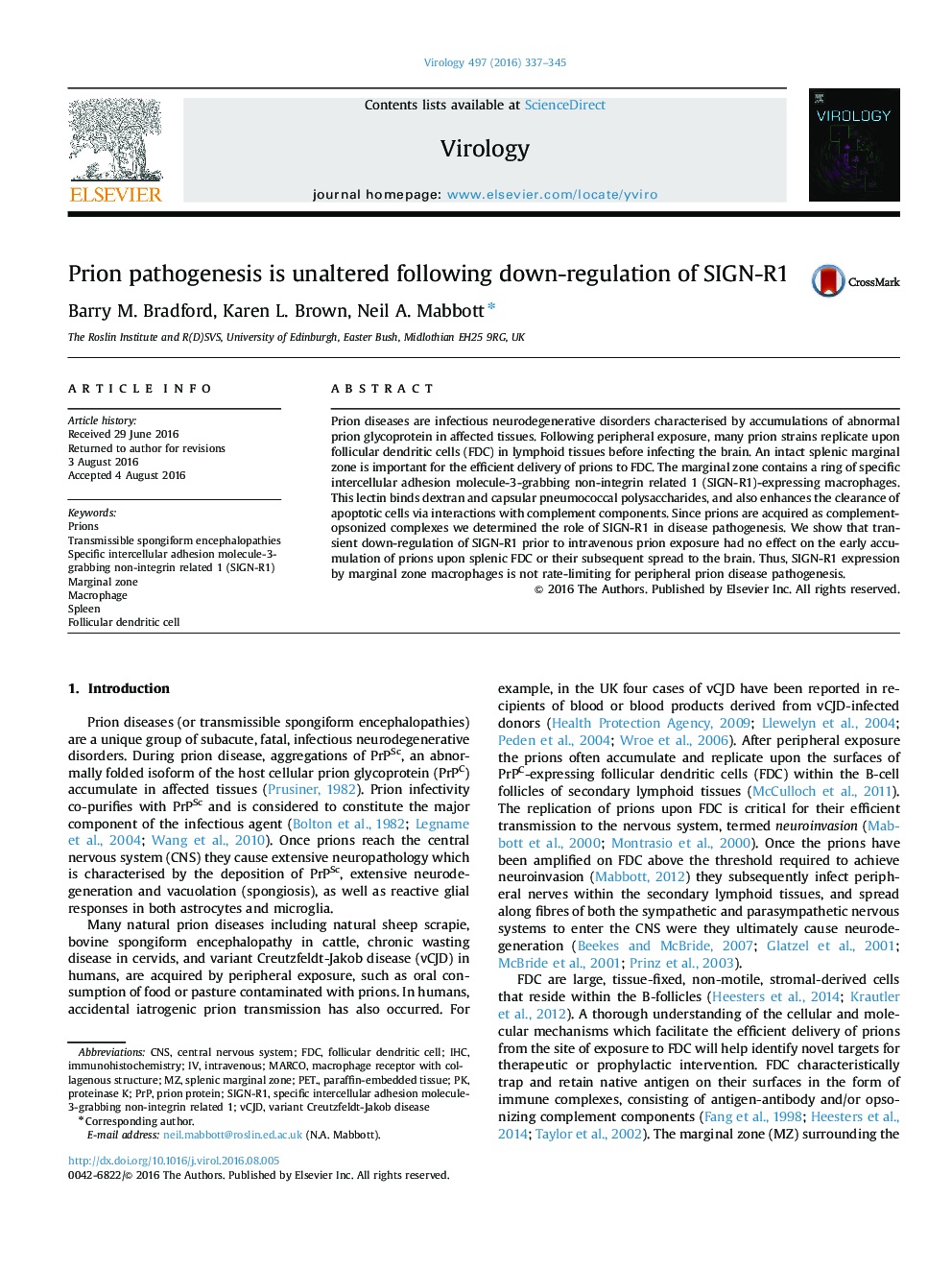| Article ID | Journal | Published Year | Pages | File Type |
|---|---|---|---|---|
| 6138664 | Virology | 2016 | 9 Pages |
Abstract
Prion diseases are infectious neurodegenerative disorders characterised by accumulations of abnormal prion glycoprotein in affected tissues. Following peripheral exposure, many prion strains replicate upon follicular dendritic cells (FDC) in lymphoid tissues before infecting the brain. An intact splenic marginal zone is important for the efficient delivery of prions to FDC. The marginal zone contains a ring of specific intercellular adhesion molecule-3-grabbing non-integrin related 1 (SIGN-R1)-expressing macrophages. This lectin binds dextran and capsular pneumococcal polysaccharides, and also enhances the clearance of apoptotic cells via interactions with complement components. Since prions are acquired as complement-opsonized complexes we determined the role of SIGN-R1 in disease pathogenesis. We show that transient down-regulation of SIGN-R1 prior to intravenous prion exposure had no effect on the early accumulation of prions upon splenic FDC or their subsequent spread to the brain. Thus, SIGN-R1 expression by marginal zone macrophages is not rate-limiting for peripheral prion disease pathogenesis.
Keywords
Variant Creutzfeldt-Jakob diseaseSIGN-R1vCJDPET.FDCMARCOPrPTransmissible spongiform encephalopathiesImmunohistochemistryIHCParaffin-embedded tissueIntravenousCNSfollicular dendritic cellcentral nervous systemSpleenMacrophagemarginal zonePrion proteinProteinase KPrionsmacrophage receptor with collagenous structure
Related Topics
Life Sciences
Immunology and Microbiology
Virology
Authors
Barry M. Bradford, Karen L. Brown, Neil A. Mabbott,
